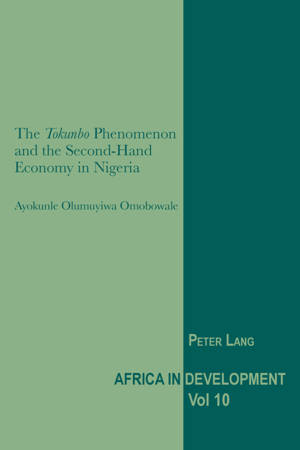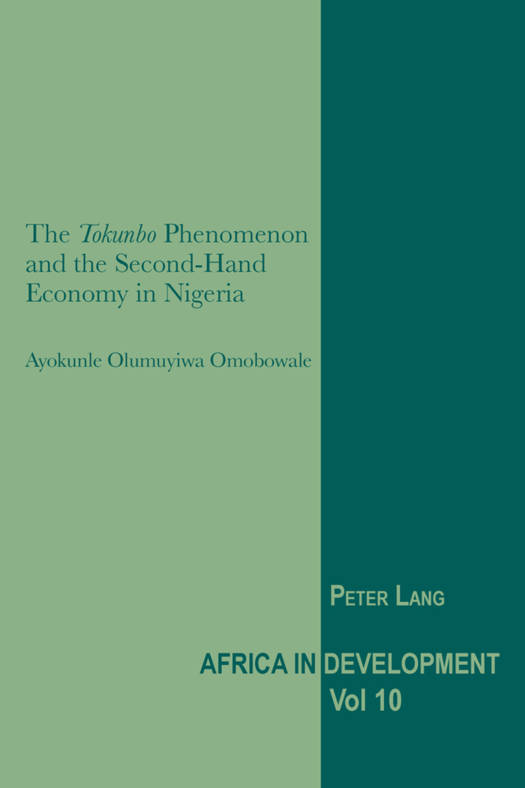
- Afhalen na 1 uur in een winkel met voorraad
- Gratis thuislevering in België vanaf € 30
- Ruim aanbod met 7 miljoen producten
- Afhalen na 1 uur in een winkel met voorraad
- Gratis thuislevering in België vanaf € 30
- Ruim aanbod met 7 miljoen producten
Zoeken
The «Tokunbo» Phenomenon and the Second-Hand Economy in Nigeria
Ayokunle Olumuyiwa Omobowale
€ 78,45
+ 156 punten
Omschrijving
This book investigates the social construction and reconstruction of Tokunbo meanings and how these impact on the second-hand economy in Nigeria. Qualitative data were collected at Abeokuta, Ibadan and Lagos in Nigeria and at Cotonou in Benin Republic. The research confirmed that Tokunbo arose from the contact of the Yoruba of south-western Nigeria with Europeans in the fifteenth century and developed further under colonization by Great Britain. Tokunbo as a given name was reserved for children conceived or born in Western countries. The name conveyed an elitist status on bearers and their families, presenting them as harbingers of Western civilization. Following an economic downturn and the consequent dependence on second-hand imports from the 1990s onward, the values attached to Tokunbo were socially modified and transferred to second-hand imports. From this point on, consumers described these imports in glowing terms, emphasizing their quality compared to «substandard» imports from Asia. The Tokunbo second-hand economy enables access to goods that consumers consider essential for the transmission of modernity through the consumption of Western material culture.
Specificaties
Betrokkenen
- Auteur(s):
- Uitgeverij:
Inhoud
- Aantal bladzijden:
- 190
- Taal:
- Engels
- Reeks:
- Reeksnummer:
- nr. 10
Eigenschappen
- Productcode (EAN):
- 9783034307857
- Verschijningsdatum:
- 20/12/2012
- Uitvoering:
- Paperback
- Formaat:
- Trade paperback (VS)
- Afmetingen:
- 150 mm x 224 mm
- Gewicht:
- 294 g

Alleen bij Standaard Boekhandel
+ 156 punten op je klantenkaart van Standaard Boekhandel
Beoordelingen
We publiceren alleen reviews die voldoen aan de voorwaarden voor reviews. Bekijk onze voorwaarden voor reviews.











